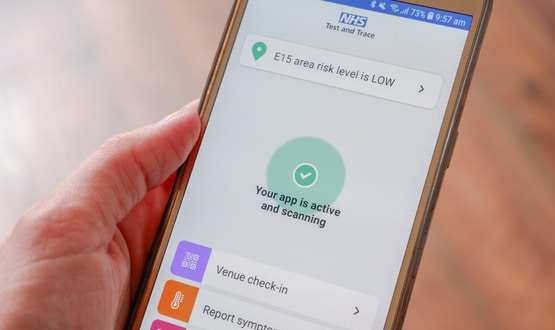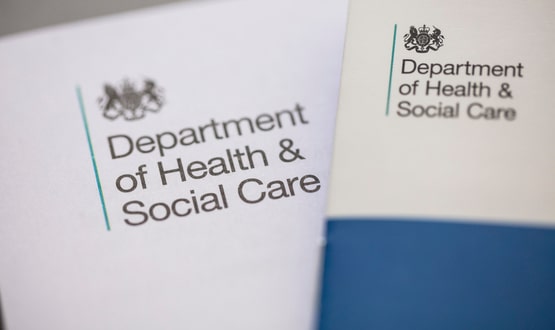NHS Covid-19 app to share user’s venue check-in data
- 7 April 2021

Users of the NHS Covid-19 app will soon be asked to share details of the venues they’ve visited if they test positive for coronavirus.
The update to the app is due to be rolled out before venues including non-essential shops, gyms and outdoor hospitality open on 12 April.
The app previously used QR code check-ins to trace the venues users had visited, but the information was only used to notify users if there had been an outbreak linked to that venue.
The system relied local authorities to flag an outbreak and didn’t require users of the app to share information about the venues they had visited with contact-tracers.
Under the update authorities will be able to use the information providers by users to tell other visitors if they need to book a Covid-19 test.
A Department of Health and Social Care (DHSC) statement confirmed users will be asked to share their data in a “privacy-protecting way” to improve the ability to identify outbreaks.
The app will only share venue information with authorities if users opt in to do so. Personal information, including name and address, would not be shared with authorities, only the time and date an infected person visited the venue.
“We are constantly updating the app in line with user feedback and new technologies, and these new changes make it as easy as possible for people to protect themselves and their loved ones by knowing when they are at risk,” a DHSC spokesperson said.
“As we continue down the path set out in the roadmap it is vital that this advice is implemented to help stop the spread of the virus and help us return to normal.
“The app has been designed with user privacy in mind, so it tracks the virus not people, and uses the latest in data security technology to protect privacy.”
Further updates ahead of venues opening on 12 April include the requirement for everyone who enters a venue to check-in using an NHS QR code poster or with the NHS Covid-19 app. Previously only one person from the group was required to check-in.
The app will also be updated to allow people to log test results following the announcement that everyone in England will be able to take a free rapid Covid-19 test twice a week from 9 April.
‘Important pillar’ in easing lockdown
Wolfgang Emmerich, founder of Zühlke Engineering which helped build the app, recently told Digital Health News the app would be an “important pillar” in controlling the spread of coronavirus as the UK comes out of lockdown.
Emmerich said the app was a “highly effective” tool to reach people who have come into contact with the virus and need to self-isolate.
Since the app’s launch in September 2020 it has been downloaded 21.63 million times, with 1.7 million users advised to self-isolate following close contact with someone who had tested positive, Department of Health and Social Care figures show.
Data on the app is now published weekly alongside Test and Trace data. It has undergone several updates since its launch, including interoperability with the Scottish and Northern Ireland app; updates to accuracy; and the implementation of self-isolation payments.
For a more in-depth look at the NHS Covid-19 app, and what went wrong along the way, take a look at our timeline of events here.





1 Comments
I thought Google & Apple had vetoed this idea and refused to patch the update required to deliver this functionality!
Comments are closed.